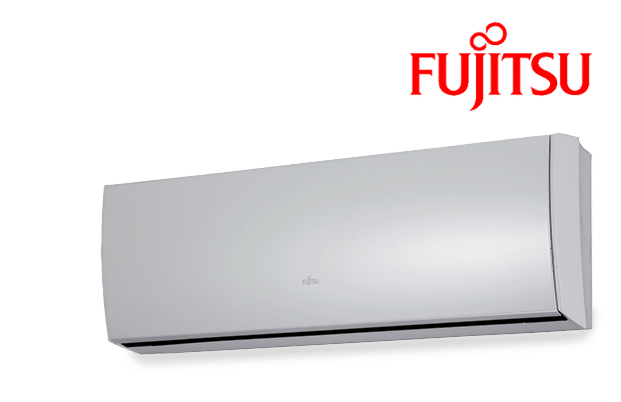Fujitsu air conditioners are known for their reliability and efficiency, making them a popular choice for many Australian homes and businesses. However, like any air conditioning system, they can experience occasional issues.
Understanding some basic troubleshooting techniques can save you time, money, and the hassle of calling in a professional for minor problems. In this guide, we’ll cover some of the most common issues with Fujitsu air conditioning systems and provide you with practical steps to resolve them. That said, it’s important to know when to call in a qualified technician for more complex or hazardous issues.
No Power to the Unit
Possible Causes:
One of the most frustrating problems with any air conditioner is when it won’t turn on at all. There are a few common reasons for this issue with Fujitsu air conditioning units:
- A blown fuse or tripped circuit breaker could prevent power from reaching the unit.
- Loose or disconnected wiring can also interrupt power flow, especially after electrical surges or maintenance work.
Steps to Troubleshoot:
- Check the circuit breaker: Go to your home’s electrical panel and see if the breaker for the air conditioner has tripped. If it has, reset it and check if the unit powers on.
- Inspect the power cord: Ensure that the unit’s power cord is securely plugged in and there are no signs of wear or damage.
- Test the remote control: If your Fujitsu air conditioning unit is unresponsive, check the batteries in the remote control. If the remote isn’t working, try replacing the batteries or testing it with a different unit.
When to Call a Technician:
If the unit still doesn’t power on after these checks, there may be an issue with the internal wiring or control board. This requires professional expertise to diagnose and repair safely.
Insufficient Cooling or Heating
Possible Causes:
If your Fujitsu air conditioner isn’t cooling or heating your space effectively, it’s likely due to one of these issues:
- Clogged air filters restrict airflow, reducing the system’s efficiency.
- Incorrect thermostat settings can cause the unit to run ineffectively, either cooling or heating when not required.
- A refrigerant leak may prevent the system from achieving the desired temperature.
Steps to Troubleshoot:
- Clean or replace air filters: Dirty filters can severely impact performance. Check and clean or replace the air filters at least once every few months.
- Check thermostat settings: Ensure your system is set to the correct mode (cooling in summer, heating in winter) and that the temperature is adjusted appropriately.
- Inspect for ice build-up: If the indoor coils have ice or frost on them, switch off the unit and allow the ice to melt. Ice formation usually indicates restricted airflow or low refrigerant.
When to Call a Technician:
If cleaning the filters and adjusting settings don’t resolve the issue, or if you suspect a refrigerant leak, you’ll need a professional to assess the system and fix the problem.
Strange Noises Coming From the Unit
Possible Causes:
Strange or unusual sounds coming from your Fujitsu air conditioning unit can be alarming. These noises could be caused by:
- Loose internal components that have come undone over time.
- Debris in the outdoor unit, such as leaves, twigs, or other foreign objects.
- Motor or fan blade issues could result in grinding or banging sounds, indicating wear and tear.
Steps to Troubleshoot:
- Turn off the unit: Before investigating, always turn off the air conditioner to avoid any potential injury.
- Inspect for loose parts: Once the unit is off, inspect for any obvious loose components, such as screws or panels.
- Check the outdoor unit: Clear away any debris from the outdoor unit that could be obstructing the fan or causing vibrations.
When to Call a Technician:
If the strange noises persist, such as grinding, buzzing, or loud bangs, this may indicate damage to the motor or fan, requiring professional repair to prevent further damage.

Water Leaks or Dripping From the Unit
Possible Causes:
Water leaks are a common issue with air conditioners and are often linked to:
- A blocked or clogged condensate drain, which can cause water to back up and leak.
- Ice build-up on the coils, which melts and causes excess water to drip.
Steps to Troubleshoot:
- Inspect and clean the condensate drain line: If the drain line is blocked, you may be able to clear the clog with a wet/dry vacuum or gently flushing it with water.
- Check for ice on the coils: If you notice ice, switch off the unit and allow it to thaw. Clean or replace the air filters to improve airflow and prevent further ice formation.
When to Call a Technician:
If the condensate drain line is damaged or the ice build-up keeps returning, this could point to a refrigerant issue or a problem with the internal components that require expert intervention.
Air Conditioner Won’t Respond to Remote Control
Possible Causes:
When your Fujitsu air conditioning unit fails to respond to the remote control, it could be due to:
- Signal obstruction, such as furniture or objects blocking the signal between the remote and the unit.
- Depleted remote batteries that need replacing.
- A faulty remote sensor in the unit.
Steps to Troubleshoot:
- Clear the line of sight: Ensure there’s nothing obstructing the remote control signal between the remote and the air conditioner.
- Replace the batteries: Swap out the batteries in the remote to see if that resolves the issue.
- Reset the air conditioner: Try resetting the unit by turning it off at the power source for a few minutes, then turning it back on.
When to Call a Technician:
If none of these steps work, the issue may be with the unit’s remote sensor, which will require a technician to assess and repair.
Fujitsu Error Codes and Their Meanings
Understanding Error Codes:
Fujitsu air conditioning systems are designed to display error codes when something goes wrong. These codes help identify the issue, allowing for faster troubleshooting.
Common Error Codes and Solutions:
- Code “E:01” indicates a communication error between the indoor and outdoor units.
- Code “E:12” typically points to an outdoor fan motor issue.
Steps to Follow:
- Start by powering down the system and restarting it to see if the error clears.
- Check for any obvious issues, like loose connections or obstructions.
When to Call a Technician:
If error codes persist or are not resolved by a simple restart, contact a technician to diagnose and repair the underlying issue.
Conclusion
While Fujitsu air conditioning units are highly reliable, they can encounter occasional issues. Basic troubleshooting can resolve many common problems, from power outages to insufficient cooling or heating.
However, regular maintenance and knowing when to seek professional help can ensure your air conditioner runs efficiently for years to come. If you encounter more complex issues, don’t hesitate to contact a qualified technician to avoid further damage and ensure the longevity of your system.
